Rules for safe behavior at home. Class "home alone" rules of safe behavior when parents are not at home
The best way to educate children has always been own example. If you are attentive to your own safety, then your child will also be
repeat the same actions. Before you open the door, you need to find out who is behind it, because the child will never fulfill this requirement if you yourself do not strictly fulfill this. If you want to teach your child safety rules, first of all, follow them yourself.
At about 3 years old, you can already introduce the basics of speech. For example, if you say "No" or "Stop now," he should understand that he is in a situation that puts him at risk and that he should stop. This is also the age when he can understand that he is forbidden to go near the fire, to stand on the stairs of the stairs to go up and down, to prevent him from sticking his fingers in the hold, that he should not go out in the street, etc.
Raising children's awareness of internal accidents
Accidents happen most often. Especially since young children spend more time indoors than outside, and they are in the full period of discovering their environment. They often want to touch everything and try everything they are drawn to! For example, teaching children safety means explaining the symbols on bottles hazardous substances. We all know that these products should be inaccessible, like medicines and matches, but it is also important that they know how to interpret the marks, and if they cannot read, they know very well how to identify a black cross on an orange background, a flame or scull.
SAFETY RULES IN THE APARTMENT
- It is necessary to write in a visible place the telephone number by which he can quickly contact you or the services urgent assistance(your job,
mobile, police, ambulance, fire department, neighbors). - Learn with your child his first name, last name, parents' names, home address and telephone number.
- Remove all objects that could injure him.
- Check if you left water, gas, or electric heating devices on.
- Do not leave medications in visible places.
- When leaving in the evening, do not forget to turn on the lights in the rooms, this will scare away intruders, and your child will not be afraid to be at home alone
- If the apartment is on the first floor, then it is better to curtain the windows, and if someone knocks on the window, then you need to teach the child, without approaching him, to shout loudly: “Dad! Come here"
- When returning home, warn your child about this by telephone or intercom. Your child should only open the door after you identify yourself.
- When leaving home, remove all sharp, cutting objects and matches. If they are legally kept in the house, weapons and ammunition must be stored in a place inaccessible to children, in a safe, the code to which only adults should know.
- Teach your child how to properly use electrical appliances.
- Explain to your children that no one can ever come to your house on your behalf asking for shelter for the night, or to give away some item or bag.
- The rules of behavior should be constantly repeated. Arrange small exams, analyze the mistakes of his behavior.
Electrical outputs are among the most important hazards. Especially if your child regularly sees you plugging and unplugging things. He may mistake this gesture for a trivial gesture and do the same thing when he wants to plug in one of his electronic toys.
Learning about road safety for children
Home is your child's primary environment, so it is important that he is aware of the various dangers that surround him to prevent a moment of inattention from turning into an accident. The street will represent your child's second environment, whether it is the sidewalk in front of your house or on the street. It is impossible to predict what will happen on the street, be it motorists, pedestrians or cyclists. It is then advisable to educate your child as you go with him. A child often strives to imitate his parents.
Try to clearly explain to your child that while at home closed door, he may feel relatively safe, but as soon as he opens it, the line between him and the criminal is blurred, and he can become an easy target. It is necessary to explain to children that they cannot open the door if someone is standing on it. landing, you cannot leave the door open when leaving the apartment, even if you expect to return quickly, it is not advisable to throw out trash or pick up mail when someone is behind the child, you cannot get into the elevator with strangers. Before leaving the house, the child needs to look through the peephole and make sure that there are no strangers behind the door. If a child comes out of the door and sees strangers, it is better that he immediately returns to the apartment. If a stranger attacks, you must shout “Fire” or “We are burning” and use all the objects at hand.
If he sees you crosswalks, go through the green light and look well on both sides of the road before crossing, he will learn more about safety. It is very important to go out with your child at any time of the year to teach him the rules of behavior in any weather. The behavior of motorists differs in the case of snow and rain, the road may be slippery and the sidewalk. On the day your child can go out alone, he or she should be able to fully appreciate the environment.
Teaching prudence in school
At school, you cannot control your child. Admittedly, other adults will take care of this, but it may be wise to remind him of some basic rules regarding court games, the tools he puts in his kit, and the behavior adopted with his little companions.
Teach your child how to communicate on the phone correctly. Often, a telephone turns from a means of protection into a “master key” for criminals. The child must not say his name when telephone conversation with strangers. A child should never say that he is at home alone. Also, he should not give the address of the apartment. It is necessary to teach the child that if they try to drag him into an indecent conversation, he must hang up and inform his parents about it. It would also be a good idea to purchase a phone with automatic caller ID.
During activities, children are at risk of being hurt by sharp objects such as compasses or sharp objects such as scissors. In some cases, little ones have glue on their fingers and automatically rub their eyes without worrying about the pain it may cause. Before he comes in kindergarten, feel free to look at his behavior daily and teach him correct actions. He will avoid his small incidents that sometimes cause painful sores!
Using pedagogical tools to teach children safety
Some comrades argue more than others or play dangerous games, such as the game of scarf. It is important to teach your child to identify this behavior and take precautions: walk away, stop playing, talk to a teacher or supervisor. At this stage of awareness raising, the most important thing is to inculcate an active culture in children. By being able to identify various hazards, they can determine their own precautions. Many educational tools help parents and teachers conduct their awareness campaigns.
HOW TO SECURE YOUR HOME FROM UNINVITED “GUESTS”
My home is my fortress - says folk wisdom. And the fortress, as is known, must provide reliable protection its inhabitants and those things that are outside its walls. Therefore, take care of the vulnerable spots of your bastion. Often we don’t think about how well our home is protected from burglars, because there are metal doors With an intercom, you can’t just get into the apartment either. And we calmly go to work, go on vacation, visit friends. However, there are still specialist burglars who, if not through the door, will enter our house, which seemed such a fortress, through the window. Yes, and you can deal with locks, no matter how complex you think they may be. It is advisable to have a steel door, and it should open inward rather than outward. Then it will be difficult for an attacker to get to the loops.
Best to use simple words And lexicon that children can easily understand. Cartoons can be shown to support examples and lessons to be learned. Children are quicker to learn dangerous situations and make reference to them if they encounter them. They will remember what the cartoon character did on this occasion and instinctively reproduce the same gestures.
Sometimes appointments with emergency pediatricians can be arranged. The latter will better explain the consequences of not following safety instructions without scaring children. In addition, they will be able to teach them first aid gestures if an accident is imminent. Discussions among children also allow them to share their perceptions of danger and become aware of each other.
When leaving home somewhere, do not tell any strangers about it, even unfamiliar neighbors in the building. The man, who
treats you well; in a conversation with a stranger, he may accidentally mention that you are away. And then the chance to return to empty
the apartment is increasing.
Ask one of your friends or relatives to visit your house or apartment more often during your long absence: turn on the radio, lights.
Equipping children to act as quickly as possible in an emergency
Despite countless warnings, the risk of accidents is never reduced to zero. When emergency and without the need for mobile phone The child can trigger the "panic" button to alert you that he/she is in danger, needs help and transmitting his/her location. The best way learning about safety for children means teaching them at an early age so they become aware of the risks they face. This way, they can identify hazards, take initiative, and adopt the correct reflexes to deal with an accident if it ever happens.
Lost your keys? Change one of the locks, because if the keys are lost
not far from the house, even just walking along the entrance, you can type
keys and their number to determine the apartment.
When leaving home, always close the vents, windows, balcony door.
If strangers enter your apartment, limit their route of movement.
around the apartment, and never leave your keys visible and accessible place.
Safety rules to avoid drowning
However, people who perform this activity must follow certain safety precautions to avoid the risk of drowning.
Keep an eye on your children at all times
Never leave a child alone or unattended in or near a pool. If he gets out of sight, call him or yell at him to ask him to come closer or make sure he doesn't drown. While you are looking at your child, do not be distracted, for example by the phone or someone else. In the event of an emergency or if you must travel without being able to continue to see your child, remove him from the pool and bring him with you. Make sure you can see it at all times. . The fact that your children can swim or take swimming lessons is not enough to avoid the risk of drowning.Don't store all your valuables in one place. Places for storing valuables should be unusual, discreet and not “highlighted” in detective stories (while some analyze criminal stories for the “art of survival”, others, perhaps, use the same material to refine their “art of crime”).
Where does a thief who breaks into someone else's apartment look for hidden valuables first of all?
Adopt safe behavior
Therefore, supervision of children while swimming is always necessary. Before you swim, find out about the depth of the water and whether you can swim safely. Observe precautions and warnings regarding hazards that may occur near lakes, rivers or other natural bodies of water. Always wear a life jacket or personal flotation device when swimming or in a boat.
Some numbers on how to drown in Quebec
- Do not dive when the water is shallow.
- When you swim, watch the depth of the water.
- This can be uneven and change quickly, even close to shore.
According to surveys of American burglars, their priorities are: a basket with dirty laundry; wardrobe, mattresses;
night table, wardrobe in the bathroom; shoe cabinet; fridge; washing machine; microwave oven.
Place money and documents in tightly closed metal containers. This will save them in case of a small fire.
One in 10 drownings occurs in a swimming pool, while nearly three-quarters of drownings occur in natural bodies of water. People of all age groups may drown. However, drowning is the leading cause of death in children aged 1 to 4 years. Most often, children drown in residential swimming pools after accidentally falling into the water without an adult watching them.
The new booklet details the value that children have to deal with this path independently, as well as possible problems and the risks they may face along the way. He intends to provide valuable help parents and their associations in traffic education and summarize home protection measures from home to school facilities. The publication focuses on the situation of children aged 4 to 12 years. To encourage children to read, the publication includes a whole family game.
If you live on the first or top floor or have a balcony, close the windows when leaving an empty apartment. Decorate the outside of the front door more simply: without leather, without bronze, without a “Doctor of Science” sign. Leave the lamp on before leaving. Radio on
don’t leave: this is such a hackneyed technique that empty apartments can be found by the radio blaring outside the doors. Strengthen the door jamb and the door at least in the places where the lock and hinges are located. Install a second lock and have a third lock in reserve in case the first two break. To scare away criminals, you can equip a pseudo-alarm system. You, of course, have a doorbell. Modify it so that it also turns on when the door is opened.
The path to home school is a space for a wide variety of activities and experiences. The journey from home to school is of great importance for the development of children's personality because it is a time of freedom. Here they avoid direct control from parents and teachers and can gather their own experience. With every step they move, children learn something new. They discover animals and plants, observe other people and their behavior, live environment V different time days, changing seasons and under any weather conditions.
In this way, the homeschool journey becomes a collection of adventures and fitness routes, learning, sharing, and “phasing.” Those who walk alone must make decisions, correctly evaluate what they observe and behave consciously. With others it is important element in that. In interviews, meetings, games, and conflicts, children develop their individuality. At the same time, walking or cycling contributes positively to the daily need for movement and improvement of motor skills.
WHAT TO DO IF THE MERCURY THERMOMETER IS BROKEN
Mercury is an extremely dangerous toxic metal, and even a very small amount of it
may cause serious harm to the human body, up to lethal
outcome. Milligrams of mercury must be collected, otherwise they will evaporate
for years they will poison everyone living in the apartment.
Dangers and pitfalls of homeschooling. With the constant increase in traffic, the routes to school have also changed. Fear for the safety of their children is one of the biggest concerns of parents, both in the city and in rural areas. Every day they get injured in traffic Switzerland, on average there are less than 4 children aged 0 to 14 years. However, this rate is reduced by the fact that only 40% of them were injured on a home school trip; other children get injured when moving their free time.
Fortunately, in Switzerland the vast majority of children walk or bike to school. Last but not least, many parents decide to accompany their children to daycare and the school car. In Switzerland, approximately every tenth child is accompanied by “parent taxis”. This is certainly not a solution. It is advisable that the same trips to drop off and collect children endanger other children on the way to school and in front of school buildings. Children who typically use "parent cubicles" do not have a way to assimilate behavior that is correct and autonomous in movement.
So, nothing can be fixed - the mercury thermometer is in pieces.
Do not panic! Immediately open the windows and ventilate the room. Turn off
artificial ventilation. Remove children and pets.
Mercury is possible
easy to remove from linoleum, wood and any smooth surfaces. If mercury
got on the carpet or carpeting, this area must be cut out,
package carefully and discard.
What to use for removal
mercury: plastic bags, heavy duty garbage bags, rubber or
latex gloves, respirator, paper towels or napkins, cardboard
or a scraper with a rubber tip, adhesive tape, a flashlight.
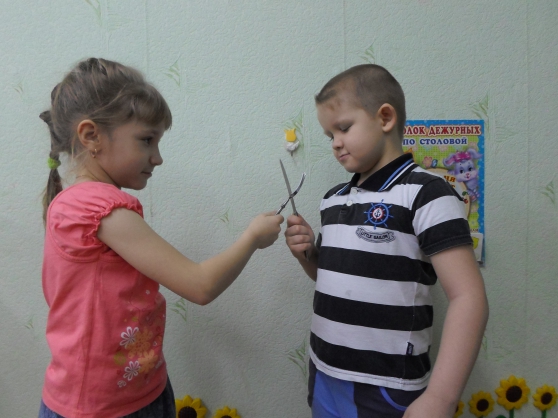
To remove mercury, you first need to remove glass shards.
They must be carefully transferred to a plastic bag, which is carefully
close (tie). Using cardboard or a scraper, slowly and smoothly
move the mercury to paper towel, which also follows
put it in a bag. You can use adhesive tape to collect individual particles. Use
flashlight to look for mercury particles that may not be visible when
normal lighting. All items that were used for removal
mercury should also be packed in trash bags. After
the room has been cleaned, treat the area where the mercury was spilled
concentrated solution of bleach or potassium permanganate,
or a hot, again concentrated, solution of soap and soda.
Next, you should call the regional sanitary and epidemiological station and find out where
You must hand over the contents of your former thermometer.
What you should never do
- Use a vacuum cleaner. If you are trying to collect mercury using a vacuum cleaner,
this will lead to even greater distribution of mercury vapor. If the vacuum cleaner was
used - it must be thrown away immediately. - Use a broom or
mop. In this case, the mercury balls will be broken into even smaller ones
particles that are incredibly difficult to collect. - Throw mercury down the toilet.
She can settle in sewer pipes and will continue to have a negative impact
impact on people's health. Removing mercury from sewers is incredibly difficult. - Wash clothing or items that have come into contact with mercury in washing machine
or use a dishwasher to clean dishes. - Never throw collected mercury into the garbage disposal or
pour it out on the street.
Anastasia Ivanova
A child, left alone in an apartment or at home, can take matches and, imitating adults, set fire to paper, plug in a household electrical appliance, or even start a fire that he once saw in the forest. The blame for this will, of course, be the parents who leave their children alone in the apartment, do not control their children’s behavior, and sometimes, indulging their children’s whims, assign them to light or look after the burning stoves, gas stoves, household electrical appliances. Our kids, in their various games, repeat the actions and actions of adults. Children are very inquisitive. They want to know everything and experience it for themselves as soon as possible. And of course, feel like an adult. A child is always attracted to bright, long-remembered objects and phenomena. And what could be more interesting and mysterious than fire! Moreover, than older child, the more independent he is in his actions. This desire for independence is especially evident in children when they are left alone at home. At what age can you leave a child alone? It is impossible to give an exact answer to this question, since it depends on a number of circumstances: the character of the child, his independence and the degree of your trust. Therefore, before deciding to take such a step, first observe the child: is he distracted, is he not prone to fears, does he know how to occupy himself? And before you leave him alone, discuss the rules of behavior with him.
Practice a poem with your child, because in poetic form children remember safety rules more easily.
Don't ride on the railings!
You go down the stairs!

Do not handle sharp objects!
You might get hurt and regret it!
The door must be closed carefully;
Otherwise, my friend, you can press your fingers there...
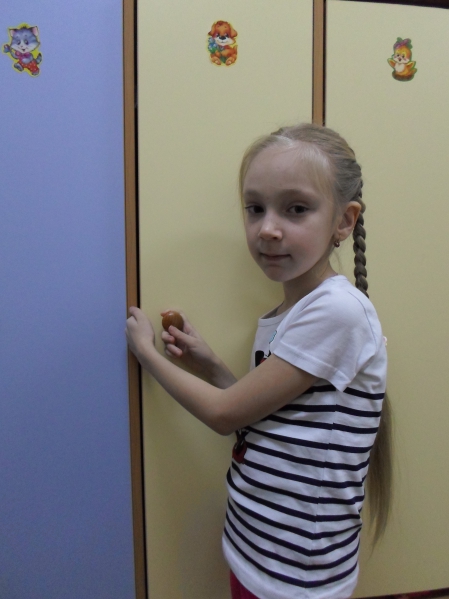
Creams, pastes, products
Don't pick it up, kids:
This household chemicals-How The poison is very strong!
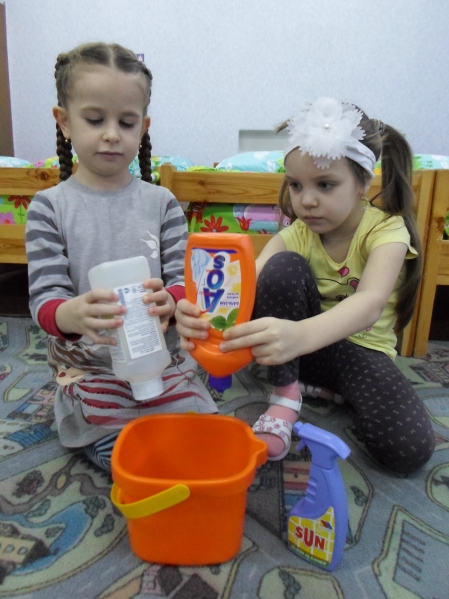
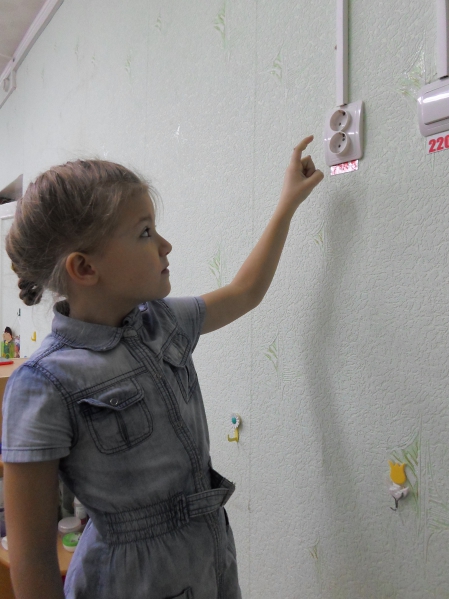
You, baby, must remember:
Be careful with the outlet!
It will end in disaster:
The current in the socket is very bad!
If you are not sick,
You can't eat pills:
Swallow them for no reason
It's dangerous for you, friends!
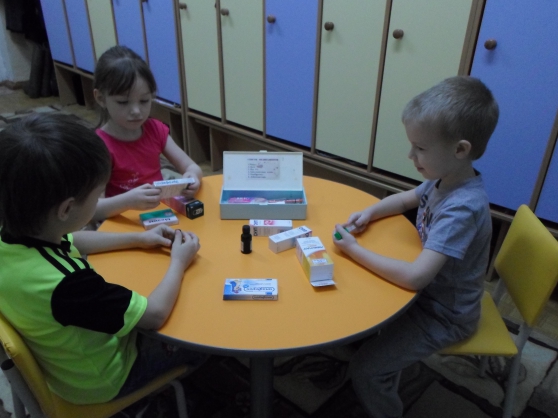
Don't put your nose in your ears
small items!
They might get stuck there...
Remember about
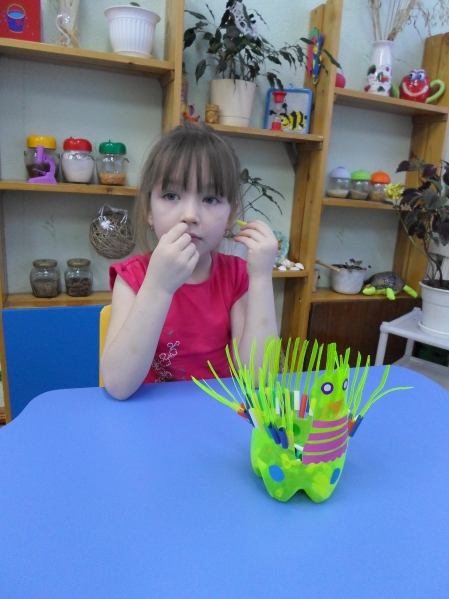
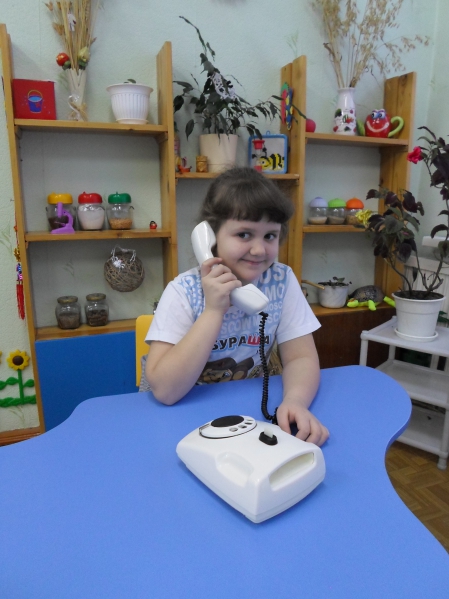
If there are no adults at home,
Don't have conversations with anyone.
“Goodbye!” - say
Hang up quickly!
Baby, remember our advice
So that no trouble happens to you,
Wait a little longer:
First you have to grow up!
